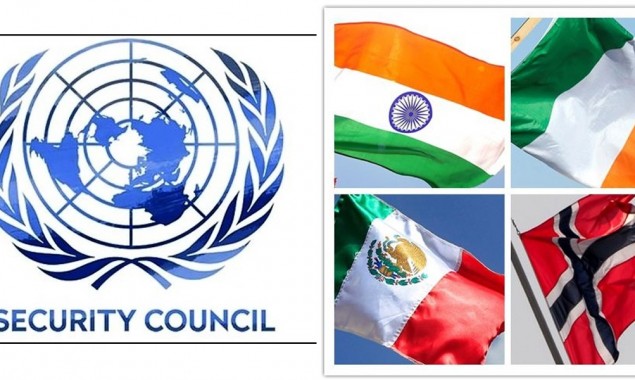
Four new members of the UN Security Council have been elected for 2021 and 2022, while Canada has once again failed and Africa’s seat will be decided in the second round.
According to the details, India, Mexico, Norway and Ireland have been elected as non-permanent members of the Security Council, while the Republic of Djibouti and Kenya have failed to get a two-thirds majority.
Djibouti and Kenya will take part in the second round of Security Council membership today (Thursday).
Despite a long and well-campaigned campaign, Ireland and Norway once again defeated Canada in one of the Western seats, a blow to Prime Minister Justin Trudeau.
India had participated in the elections from the Asia Pacific. Out of 192 countries, 184 votes were cast.
It is to be noted that India is trying to win a permanent seat in the Security Council and this will be India’s eighth term as a member.
These results mean that India will now be at odds with China, even after a dispute between the two countries over the Himalayan border that left 20 Indian soldiers dead.
Mexico ran unopposed and garnered 187 votes out of the 192 countries that participated in the election.
On the other hand, the African countries that have always been successful in choosing their candidate did not get ahead this time, Kenya got 178 votes and the Republic of Djibouti got 78 votes.
Kenya has the support of the African Union, but the Republic of Djibouti has said that in the past, Nairobi’s participation in the Security Council and the principle of rotation should give it a seat.
The French-speaking country of Djibouti and the English-speaking country of Kenya are both in Africa, as well as highlighting their role in achieving peace through their role in UN peacekeeping missions.
Kenya welcomes refugees from Somalia and South Sudan and points to cooperation with weak governments in both countries.
The Republic of Djibouti asserted its role in Somalia, as well as its strategic location and extraordinary role as a defence base for various countries such as France, the United States, China and Japan.
In addition, the competition for European and Western seats was higher than usual.
Canada had previously suffered a defeat in the Security Council in 2010 when Portugal was elected by the General Assembly.
In the recent elections, Norway received 130 votes and Ireland 128 votes. It should be noted that at least 128 votes are required to win a seat in the Security Council.
Justin Trudeau had invested heavily in Security Council membership and the defeat would bring political embarrassment to his country.
“We are committed to the goals and principles set during this campaign,” he said in a statement, adding that “we will continue to play an important role in enhancing global cooperation and building a peaceful and stable world.”
Also read: India’s extremist policies threat to regional peace: FM
Read More News On
Catch all the International News, Breaking News Event and Latest News Updates on The BOL News
Download The BOL News App to get the Daily News Update & Follow us on Google News.




